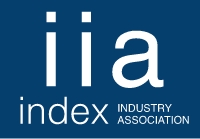Index Industry Association Survey Finds Better Corporate Data Needed for Asset Managers to Offer Better ESG Investment Products
Index Industry Association Survey Finds Better Corporate Data Needed for Asset Managers to Offer Better ESG Investment Products
NEW YORK--(BUSINESS WIRE)--As global demand for Environmental, Social and Governance (ESG) investment strategies continues to increase, asset managers question their ability to keep up with demand as they grapple with the issue of how to better define and measure sustainable investments. This is among the key findings of a recent survey of 300 U.S. and European asset managers sponsored by the Index Industry Association (IIA) in the report Measurable Impact: Asset Managers on the Challenges and Opportunities of ESG Investment.
“Better corporate data leads to better benchmarks, which allows asset managers to offer better investment products,” said Rick Redding, CEO of IIA. “The survey highlights that, while there is growing global demand for ESG investment products, a lack of corporate data reporting standardization and the complex array of ESG reporting organizations leaves ESG investors wanting more clarity about the available investment products.”
Increasing Demand for ESG
The growing importance of ESG investing is confirmed by the survey results, with 85% of asset managers surveyed saying ESG is a high priority for their companies. These managers expect ESG to become even more important to their companies in the future, with the proportion of ESG assets in their portfolios set to rise from an expected 26.7% in twelve months’ time to 43.6% in five years’ time.
Challenges for ESG
The survey, which was sponsored by the IIA, identified a series of challenges to creating better ESG products for investors. Among these challenges is a lack of reliable corporate data about the ESG activities of companies in which asset managers could invest.
The data problem in ESG investing is pervasive. Sixty-three percent of investment companies surveyed highlight a lack of quantitative data as a major (24%) or moderate (39%) challenge to ESG implementation. Getting information on ESG activities can be challenging, with 64% concerned about a lack of transparency or insufficient corporate disclosure in relation to firms’ ESG activities.
More fundamentally, there are widely varying philosophies on how ESG performance should be evaluated. In the survey, 61% of respondents pointed to a lack of meaningful metrics as a major or moderate challenge to ESG implementation for fund and asset managers. A similar proportion (58%) highlighted a lack of data standardization. Internationally, there are countless ESG reporting organizations and conventions.
Need for More ESG Asset Class Options
Globally, ESG investing is still heavily dominated by one asset class: equities. These attracted about 90% of sustainable funds in the U.S. in 2020.1 In Europe, about 68% of ESG funds went to equities in the last quarter of 2020, with about 18% going to fixed income. However, 88% of survey respondents highlighted the need for greater acceptance of ESG in more asset classes such as fixed income.
The Role of Indexes
Indexes are widely used by asset managers to reduce the information haze and complexity in financial markets.
The survey confirms the importance of indexes to ESG investing. The asset manager respondents use indexes almost equally for measurement/benchmarking (40%) and as the basis for investment portfolios (39%). The use of indexes for investment is especially prevalent among funds where ESG is a core part of all activities (56%). And index providers are highly trusted: 84% of asset managers said they trust index providers a lot or somewhat to push financial services ESG innovation and standards, just slightly behind the asset-management industry itself (88%).
Visit the IIA ESG Survey page to view the full survey findings.
Survey Methodology
Opinium Research surveyed 300 CFOs/CIOs/portfolio managers in Asset Management firms in four markets between 15th and 31st March 2021. Respondents were based in U.S. (80), U.K. (80), France (70), Germany (70) and represented a range of types of firms. The results have been aggregated and anonymized for presentation to the public.
About Index Industry Association (IIA)
IIA is an independent, not-for-profit organization based in New York that provides a voice for the global index industry. Founded in March 2012, the association represents the global index industry by working with market participants, regulators and other representative bodies to promote competition and sound practices in the index industry to strengthen markets and serve the needs of investors. Our members have calculated indices as far back as 1896 and today administer more than three million indices for their respective clients covering a number of different asset classes including equities, fixed income, commodities and foreign exchange.
Many of the leading index providers in the world are members of the IIA, including Bloomberg Indices, Cboe Global Markets, Chicago Booth Center for Research in Security Prices (CRSP), China Central Depository and Clearing, FTSE Russell, Hang Seng Indexes, ICE Data Services, IHS Markit, Morningstar Indexes, MSCI Inc., Nasdaq Global Indexes, Shenzhen Securities Information Co., Ltd., S&P/Dow Jones Indices, Tokyo Stock Exchange and Qontigo (formerly STOXX). Visit the IIA website for more information at www.indexindustry.org.
______________________________
1 Morningstar, January 2021, Global Sustainable Fund Flows. Available at: https://www.morningstar.com/content/dam/marketing/shared/pdfs/Research/Global_ESG_Q4_2020_Flows.pdf
Contacts
Matthew Sheahan
Lansons Intermarket
(917) 647-3242
msheahan@intermarket.com
